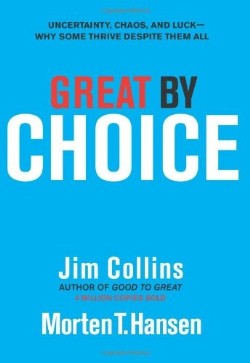Encountering Reality : T. F. Torrance On Truth And Human Understanding
$49.00
Introduction
1. What Is (Authentic) Knowledge?
2. Ultimate Beliefs
3. Objectivity
4. What Does It Mean To Speak Kata Physin? The Question Of Truth
5. What Is The Role Of Theory In Kataphysic Knowledge?
Conclusion
Bibliography
Index
Additional Info
Encountering Reality argues for a new appreciation of T. F. Torrance on epistemology and reality. According to Torrance’s realism, all authentic knowledge involves the nature of the object impressing its inherent rationality on the mind. Consequently, knowledge involves thinking in accordance with the nature of the object. Stevick explores the place and function of “ultimate beliefs” in epistemology, as well as the question as to whether such beliefs imply a retreat to either foundationalism or fideism. The inescapability of ultimate beliefs in all human knowledge requires a shift in the traditional notion of objectivity. We find that shift in the account provided by T. F. Torrance, whose epistemological position implies an alternative notion of truth.
Drawing on distinctly Christian sources, Torrance emphasizes the distinction between truth and truthfulness, thereby reorienting the discussion from a focus on statements to a focus on being. This shift challenges the dichotomy between correspondence and coherence theories of truth and provides one way of transcending the scientific realism/antirealism debate and gives rise to a practical epistemological tool, disclosure models, which function as self-correcting, self-marginalizing lenses through which we encounter reality, yielding knowledge in accordance to the nature of the thing known.
in stock within 3-5 days of online purchase
SKU (ISBN): 9781506412917
ISBN10: 1506412912
Travis Stevick
Binding: Cloth Text
Published: December 2016
Emerging Scholars
Publisher: Augsburg Fortress Publishers – 1517 Media
Print On Demand Product
Related products
-
Devil At My Heels
$14.99Add to cartAthletically gifted, Louis Zamperini propelled himself from the tough streets of Southern California to the 1936 Berlin Olympics, and to an NCAA mile record at USC that stood for 20 years. When war came he left the track for a B-24-a move that would have heartbreaking consequences. On a routine mission his plane crashed into the shark-infested Pacific and he would drift 2,000 miles for 47 days before being found by the Japanese. As a prisoner of war, Zamperini endured two years of horrible torture and humiliation at the hands of a psychopathic guard nicknamed “The Bird.” Yet Zamperini endured and returned home a hero.
Unfortunately, the terrible memory of his experiences haunted him. Zamperini turned to alcohol and spiraled into the depths of despair until a young preacher named Billy Graham helped him rediscover the faith that would eventually lead him to return to Japan and personally forgive all his now-imprisoned captors. Moving and unforgettable, terrifying and inspirational, Devil At My Heels is not to be missed.
-
Great Divorce
$17.99Add to cartC.S. Lewis takes us on a profound journey through both heaven and hell in this engaging allegorical tale. Using his extraordinary descriptive powers, Lewis introduces us to supernatural beings who will change the way we think about good and evil. In The Great Divorce C.S. Lewis again employs his formidable talent for fable and allegory. The writer, in a dream, finds himself in a bus which travels between Hell and Heaven. This is the starting point for an extraordinary meditation upon good and evil which takes issue with William Blake’s The Marriage of Heaven and Hell.
-
My Faith Confessions
$5.99Add to cartMy faith Confession is a colourfully illustrated confession book for children. It’s filled with Bible based confessions that will help children learn the importance of the principle of saying what God has said about them.
It’s a one-stop resource material that will inspire, sustain and build in children the culture of confession faith-filled words that would launch them into a glorious future. -
Great By Choice
$29.99Add to cartThe new question
Ten years after the worldwide bestseller Good to Great, Jim Collins returns with another groundbreaking work, this time to ask: Why do some companies thrive in uncertainty, even chaos, and others do not? Based on nine years of research, buttressed by rigorous analysis and infused with engaging stories, Collins and his colleague, Morten Hansen, enumerate the principles for building a truly great enterprise in unpredictable, tumultuous, and fast-moving times.The new study
Great by Choice distinguishes itself from Collins’s prior work by its focus not just on performance, but also on the type of unstable environments faced by leaders today.With a team of more than twenty researchers, Collins and Hansen studied companies that rose to greatness-beating their industry indexes by a minimum of ten times over fifteen years-in environments characterized by big forces and rapid shifts that leaders could not predict or control. The research team then contrasted these “10X companies” to a carefully selected set of comparison companies that failed to achieve greatness in similarly extreme environments.
The new findings
The study results were full of provocative surprises. Such as:The best leaders were not more risk taking, more visionary, and more creative than the comparisons; they were more disciplined, more empirical, and more paranoid.
Innovation by itself turns out not to be the trump card in a chaotic and uncertain world; more important is the ability to scale innovation, to blend creativity with discipline.
Following the belief that leading in a “fast world” always requires “fast decisions” and “fast action” is a good way to get killed.
The great companies changed less in reaction to a radically changing world than the comparison companies.
The authors challenge conventional wisdom with thought-provoking, sticky, and supremely practical concepts. They include: 10Xers; the 20 Mile March; Fire Bullets, Then Cannonballs; Leading above the Death Line; Zoom Out, Then Zoom In; and the SMaC Recipe.Finally, in the last chapter, Collins and Hansen present their most provocative and original analysis: defining, quantifying, and studying the role of luck. The great companies and the leaders who built them were not luckier than the comparisons, but they did get a higher Return on Luck.
This book is classic Collins: contrarian, data-driven, and uplifting. He and Hansen show convincingly that, even in a chaotic and uncer






Reviews
There are no reviews yet.